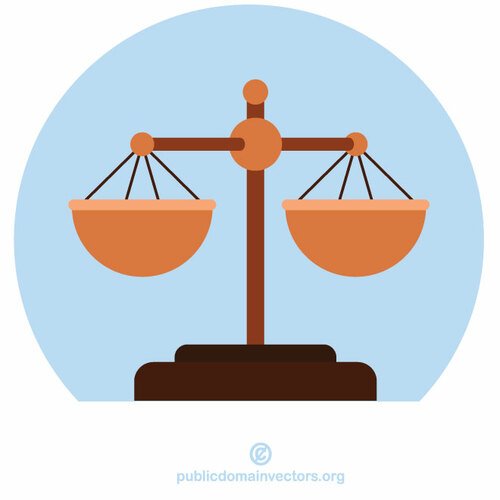In today’s digital age, our personal information is constantly at risk—whether from data breaches, online tracking, or intrusive ads. Protecting your privacy has never been more important. This guide provides you with alternative browser options for more private online searching.
Read moreTech Tuesday: The Intersection of Technology and Domestic Violence
Along with dominating headlines over the past few years, technology and internet safety were highlighted by domestic and family violence advocacy organizations and service providers throughout this year’s Domestic Violence Awareness Month, observed annually each October.
Read moreFrom Legal Tech to Tech Law: Technology as a Legal Practice
At the Harris County Robert W. Hainsworth Law Library, we promote the benefits of legal tech. We offer a rotating series of educational opportunities to help library users engaged in legal work improve their legal tech skills. Our Legal Tech Institute, which celebrates 7 years of legal tech training this October, is offering several classes in the upcoming months. Check our Course Calendar here to register for events taking place as soon as this week (August 31) when we will offer three CLE sessions on legal drafting, law practice essentials, and our LexisNexis ebook collection. The sessions, which are designed to offer useful tools for both practicing attorneys and self-represented litigants, will each carry one free hour of CLE credit. We are happy to support the legal community by providing regular CLE opportunities for active members of the Texas Bar.
We also feel strongly about supporting the community of law students right in our backyard. With three of Texas’s ten ABA-accredited law schools within a stone’s throw of our physical location on the first floor of Congress Plaza in downtown Houston, we are mindful of aspiring lawyers -- those pursuing juris doctorate degrees, as well as recent graduates, particularly newly minted solo practitioners. This population is the focus of today’s Tech Tuesday blog post as we explore not Legal Tech but Tech Law, a field of legal practice dealing with developments and innovations in data gathering and analysis, machine learning, generative AI, and so much more, especially with respect to the impact of these advances on our economy, society, and civil institutions.
Attorneys who practice in this area of law inform policy decisions, shape legislation, and support the development of legal frameworks for understanding, navigating, regulating, and managing the many facets of technology we encounter every day. Borrowing content from this blog post, the following are listed as specific areas in which lawyers play important roles in the technology landscape:
The legal field offers a wide array of roles within the technology sector beyond traditional legal practice. Here are some additional roles where lawyers with tech expertise can make a significant impact:
Legal Counsel/Advisor for Tech Companies: Specialize in providing legal guidance to technology companies on issues ranging from intellectual property protection to data privacy and protection.
Contracts and Agreements: This includes negotiating, drafting, and reviewing technology-related contracts such as software licensing agreements, technology transfer agreements, and service-level agreements.
Regulatory Compliance: Oversee and ensure that tech products and services meet industry-specific regulations and standards, such as incorporation, cybersecurity regulations and telecommunications laws amongst others.
Funding and Private Equity Advisory: Lawyers offer strategic counsel on securing investment and private equity funding to fuel tech companies’ growth.
Data Protection and Privacy Compliance: With the rise of data privacy concerns, lawyers can take on roles to ensure that tech companies comply with data protection regulations and handle user data responsibly.
Ethics and AI Specialist: Focus on the legal and ethical implications of artificial intelligence and emerging technologies, ensuring that tech developments align with legal and ethical standards.
If you are a current law student or a recent law school graduate wishing to build your tech proficiency, we have the tools for you! Join us at an upcoming Legal Tech Institute session, or take advantage of the access we provide to legal research databases and ebook collections. If you find that your interest and aptitude for all things tech leads you to the path of practicing Tech Law, keep in mind the options mentioned above as well as the areas of intellectual property, cybercrime, software licensing, and electronic commerce, for which specialized knowledge and tech expertise are both desired and in demand.
ChatGPT, AI, and the Spread of Misinformation
Chat GPT and AI have been a hot topic in the legal field as of late. Many legal research databases such as Lexis and Westlaw have invested millions of dollars into this new and emerging technology. While Lexis and Westlaw are both companies that will combine their legal databases with AI technology, these features have not been released to the public just yet. They are still being tested and adapted for improvement to be used by legal professionals.
Read moreCourt Technology Innovations: New Challenges with the New Normal
How have courts met the challenges of the COVID-19 pandemic with new innovations in court technology? And have these innovations made access to justice easier, or more difficult? According to a recent report from The Pew Charitable Trusts, courts across the country have rapidly adapted online and remote services in a time when in-person access to the courts was greatly restricted while at the same time the need for legal services skyrocketed. Almost all aspects of court proceedings have been affected, including conducting hearings, processing filings, and enforcing judgments and decisions.
Read more





